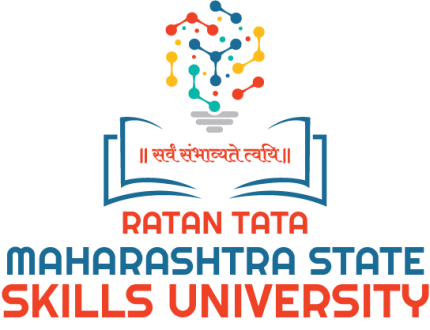Career Opportunities After MBA in Marketing, Finance, HR & Operations
September 29, 2025 2025-10-13 15:10Career Opportunities After MBA in Marketing, Finance, HR & Operations

Career Opportunities After MBA in Marketing, Finance, HR & Operations
Marketing, Finance, HR, and Operations are key to any business. Even though new areas like data analytics and digital tech are getting a lot of buzz, businesses still need people who know these basics to keep things running. Data from recent MBA/PGDM programs in India shows that these areas are still where most job offers are. For example, at Panjab University’s business school in 2024-25, companies were really interested in hiring for marketing, HR, operations, and finance, with average salaries around ₹12.95 lakh per year.
Choosing one of these areas in MBA isn’t a backup plan; it’s a choice for job security, lots of options, and a fast road to a job that matters. But each area is different, with its own set of challenges and chances.
Marketing: It’s Not Just Ads Anymore
If you get an MBA in Marketing, you’ll do more than just work on branding or launch new products. These days, a marketing MBA can lead to jobs in digital media, how to grow a business, understanding customers, making content, working with influencers, and even crafting the products.
In 2025, companies will be looking for marketing MBAs to fill roles like Marketing Manager, Brand Manager, Digital Marketing Manager, Product Manager, and Growth Marketer. In cities like Mumbai and Pune, where businesses are well-established and competition is tough, marketing jobs often need skills, like using data to make decisions, understanding customer value, and doing well in advert campaigns. According to UpGrad, Marketing Managers in India can make ₹8 to 20 LPA early to mid-career. After that, if you get good at digital media and strategy, you could go for leadership positions like Head of Marketing or CMO.
Marketing has its downsides. It’s competitive, customer habits change fast, and digital tools are always updating. But if you’re creative, can communicate well, and can think analytically, marketing offers a lot of variety and chances to grow.
MBA Admission Open at RT-MSSU Apply Now
Finance: Still a Top MBA Choice, But Changing Fast
Finance has always been a really desired MBA specialization. After getting your MBA in Finance, you could become a Financial Analyst, Finance Manager, Investment Banker, Risk Manager, or Treasury Manager. You could also find roles in corporate finance or financial planning.
Right now, companies really want finance graduates, especially in fintech, wealth management, and investment firms. For example, in 2025, MBA Finance (Financial Administration) was the most popular MBA specialization for applicants in Indore, even beating Marketing and HR. Finance jobs often pay well right from the start. In big cities, mid-level finance positions can begin around ₹12-18 LPA and go up to ₹20-35 LPA or higher as you get experience with investments or risk .
Keep in mind that finance jobs need solid math skills, knowledge of the rules, and a commitment to keep up with new tech like Fintech and digital payments, and tools like financial modeling and data analytics. If you combine finance with data or tech skills, you’ll likely advance faster.
Human Resources (HR): More Than Just Paperwork
HR used to be thought of as just hiring, payroll, and performance reviews. Now, with an MBA in HR, you can work in Talent Acquisition, Learning & Development, Employee Engagement, Compensation & Benefits, or even Change Management, Diversity, Equity & Inclusion (DEI), and Employer Branding.
Top companies view HR MBAs from good schools as important for molding company culture, handling remote teams, and helping companies change quickly. Salaries in HR might start lower than in finance, but they increase steadily. Early to mid-level HR Manager positions average ₹5-13 LPA, but senior roles at big companies can reach ₹30-45 LPA+. If you like working with people, policies and management, HR can be a great fit because of the status, interest and friendship.
One thing to remember: your career growth in HR often depends on your school’s reputation and your network, since senior HR positions often depend on trust, influence, and experience.
Operations: Making Businesses Work
Operations is all about making sure things run smoothly, without costing too much, and in a dependable way. If you get an MBA in Operations, you could be an Operations Manager, Supply Chain Manager, Logistics Head, Production Manager, Procurement Manager, Process Improvement Lead, or Quality Assurance Manager.
Because of globalization, online shopping, and complicated supply chains, there’s a growing need for people in operations. In India, businesses in retail, manufacturing, tech hardware, FMCG, and online retail are looking for MBAs who know things like lean management, Six Sigma, supply chain analytics, and operations strategy. Jaro Education and UpGrad say that if you’re in an operations role from entry to mid-level, you can earn ₹10-18 LPA. Senior positions can earn ₹40-55 LPA or more, depending on what you do.
Being in operations often means you need to be good at analyzing data. You also need to be detail-oriented, think about processes, work with different departments, and be tough enough to face challenges on the ground (especially in logistics and manufacturing). You may also have to work long hours, to begin with.
The Comparison
Here’s a comparison of Marketing, Finance, HR, and Operations to help you understand the career paths each offers. I’ll break down how they usually differ as you move from entry-level to senior positions.
Starting Out
- Finance: You can often find roles with better pay and prestige early on, mainly in big cities or areas like investment banking.
- Marketing: Entry-level jobs can vary a lot depending on the company, product, brand, and location.
- Operations: Expect to start with hands-on, practical work.
- HR: The pay might be moderate at the beginning, but it provides consistent job growth.
Mid-Career
- Marketing: Advancement is possible if you go into brand leadership, strategic marketing, or growth in digital areas.
- Finance: You might move into management in banks, funds, or corporate finance.
- Operations: You could be in charge of supply chain or operations at large companies.
- HR: Becoming an HR Business Partner or head of talent is a common step.
Senior Roles
- Marketing: You could become a CMO or Chief Brand Officer.
- Finance: Aim for positions like CFO Financial Director.
- Operations: You might become a COO or Head of Manufacturing/Supply Chain.
- HR: Reaching CHRO or Head of People & Culture is common, especially in companies that see culture as very important.
Moving Between Fields
Switching between departments is doable. Many leaders start in one area but get experience in others. For example, a Finance Manager might start handling operations. Someone in Marketing could deal with profit and loss, logistics, or digital operations.
Placement Info and What’s Happening
Placement periods seem to be going well in certain fields. For Panjab University’s UBS MBA placements (2024-25), 85% of students got placed with an average salary of about ₹12.95 LPA. There were job openings in marketing, operations, HR, and finance. At UIAMS (Panjab University), students in Marketing, Finance, HR, and Operations got offers up to about ₹16.4 LPA. Schools say that MBA Finance is still the most wanted area in admissions based on merit (like Devi Ahilya Vishwavidyalaya), which shows there’s a big need for it.
Also, roles in online marketing, data study, and operations in online shopping and supply chain tech are becoming popular. Students who know more than one thing (like marketing and data, finance and fintech, or operations and logistics tech) often have a better chance.
How to Pick What’s Right for You
If you like numbers, studying data, markets, and investment, then Finance is a good option. If you’re creative, like telling stories, know about what people buy, and like branding, then Marketing is a good fit. If you like working with people, changing how things are done, and leading teams, then HR might make you happy. If you like processes, being efficient, logistics, organizing tasks, and making sure things get done, then Operations might be for you.
Think about how well you handle things that aren’t clear or things that are structured. Operations and finance jobs usually have clearer ways to measure success, but marketing and HR often deal with things that are harder to measure, like how people see a brand or how happy employees are. These things are hard to put a number on, but they matter just as much.
Also, think about your lifestyle, where you want to live (big cities often pay more), if you’re okay with moving, the size and type of company (startup or big company), and what you want to do long-term (become a top manager, start your own business, or climb the company ladder).
The Institute’s Contribution: How RT-MSSU Can Expand Possibilities
Ratan Tata Maharashtra State Skills University has crafted an MBA program that focuses on practical skills through industry experience, certificate courses, lab work, and on-the-job training. As a result, graduates are well-prepared for roles in Marketing, Finance, HR, and Operations.
In cities such as Pune and Mumbai, businesses seek graduates who can immediately contribute. RT-MSSU’s specializations, training labs, and corporate partnerships make it a good option for students aiming to improve their career prospects. The institute’s MBA fee (₹2,00,000/year), combined with good placement potential, provides a worthwhile return on investment, mainly in common specializations.
In Conclusion: Deciding on the Best Path
Marketing provides variety, innovation, and dynamic challenges. Finance presents status, high earnings, and clear career advancement. HR offers purpose, a focus on people, and positions that are important to companies. Operations allows control, process improvement, and influence on output.
If a choice had to be made, specializations that combine expertise with tech or data tend to advance faster: Marketing + Digital/Data; Finance + Fintech/Data; Operations + Supply Chain Tech; HR + People Analytics/DEI. These combined paths often lead to better positions, pay, and opportunities.
In summary: understand your strengths, identify your interests, find an institute (like RT-MSSU) that offers practical experience, and commit to continuous learning. This combination often leads to greater success than simply selecting a popular specialization.
Frequently Asked Questions
What MBA specialization leads to the highest starting salary?
Answer:In India, Finance and Operations usually provide better starting salaries, especially in big cities such as Pune and Mumbai, compared to Marketing and HR..
What jobs can I get with an MBA in Marketing?
Answer:You can become a Brand Manager, Digital Marketing Manager, Product Manager, Market Analyst, or Growth Strategist.
Will HR MBA graduates be in demand in 2025?
Answer:Yes, HR MBAs are becoming more valued for jobs in Talent Management, Learning & Development, Employee Engagement, and Organizational Development.
What skills do MBA Operations graduates need?
Answer:Skills in supply chain management, process improvement, logistics, project management, and operations data analysis are very important.
Why should I pick RT‑MSSU for MBA specializations in Pune or Mumbai?
Answer:RT‑MSSU offers good industry experience, hands-on training, and skill-based education, which helps its graduates get jobs in Marketing, Finance, HR, and Operations.
Related Posts
What Makes the BBA Program at RT-MSSU Thane Unique?
Top Skills You Will Learn in a BBA Retail Program
Search
Categories
Popular Tags
Popular tags
Popular tags



